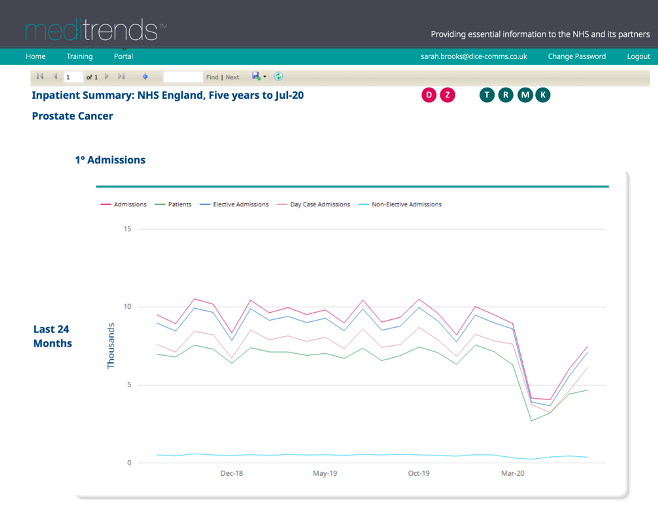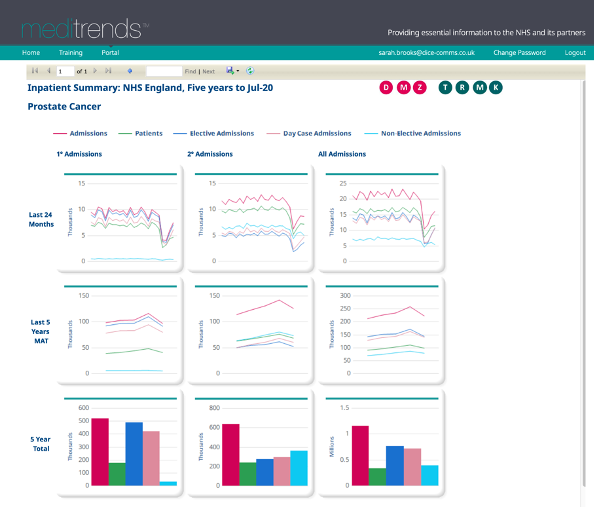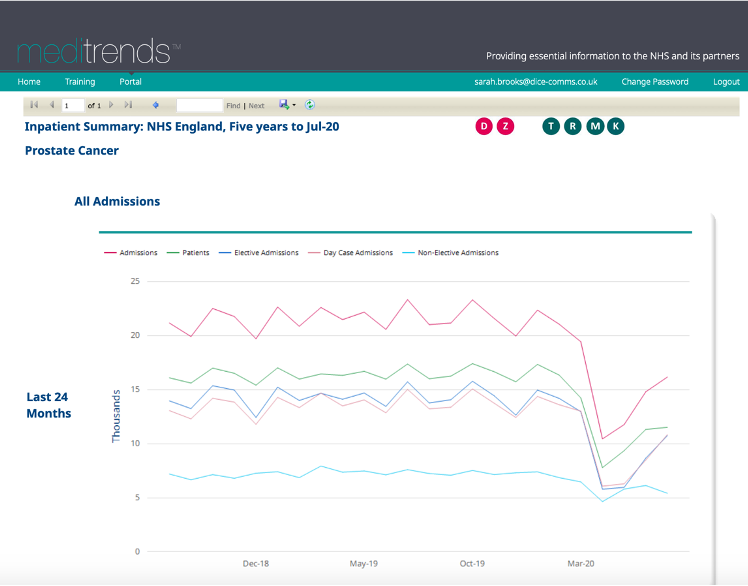

The Impact of COVID-19 on Prostate Cancer
The COVID-19 Pandemic has had a huge impact on the treatment of long-term and chronic conditions, and oncology services in particular have suffered greatly.
The following insights have been drawn from analyses presented in a Meditrends Therapy Area report on Prostate Cancer, based on more than 1 million NHS England hospital admissions among over 300,000 patients in the five years up to July 2020.
We can see from the graphs below that admissions for patients with a diagnosis of Prostate Cancer decreased significantly throughout the lockdown period; with just 4,175 admissions of patients with a primary diagnosis of Prostate Cancer in April 2020 and 4,070 in May, compared with 8,950 primary admissions in March 2020.

Admissions began to increase again from June with 6,015 primary admissions, and there were 7,490 primary admissions in July, so although activity has begun to increase, we are still not seeing the same number of admissions as we were prior to lockdown. It is worth noting that June and July’s data will include incomplete admissions – where a patient was still in hospital at the end of July when the data was submitted.
The reduction in admissions throughout April and May suggests that around 10,000 admissions were cancelled or postponed. One would expect that these admissions will need to be rescheduled and it will be interesting to see when these will be rescheduled for, especially in light of the new spike in COVID-19 cases and local tiered lockdowns in October 2020.

We can also see from the data that the number of admissions of patients with Prostate Cancer in any diagnosis position has also dramatically decreased during the COVID-19 pandemic. In January 2020 there were 22,360 admissions for this patient cohort, reducing to just 10,445 admissions in April 2020. This figure was back up to 16,170 by the end of June – still 28% less than pre-pandemic.

To find out more about the impact COVID-19 has had on patients with a diagnosis of Prostate Cancer – or to obtain similar insights relating to your disease or therapy area, please contact Sarah Brooks (Sarah.brooks@dice-comms.co.uk)






